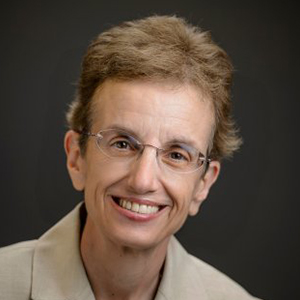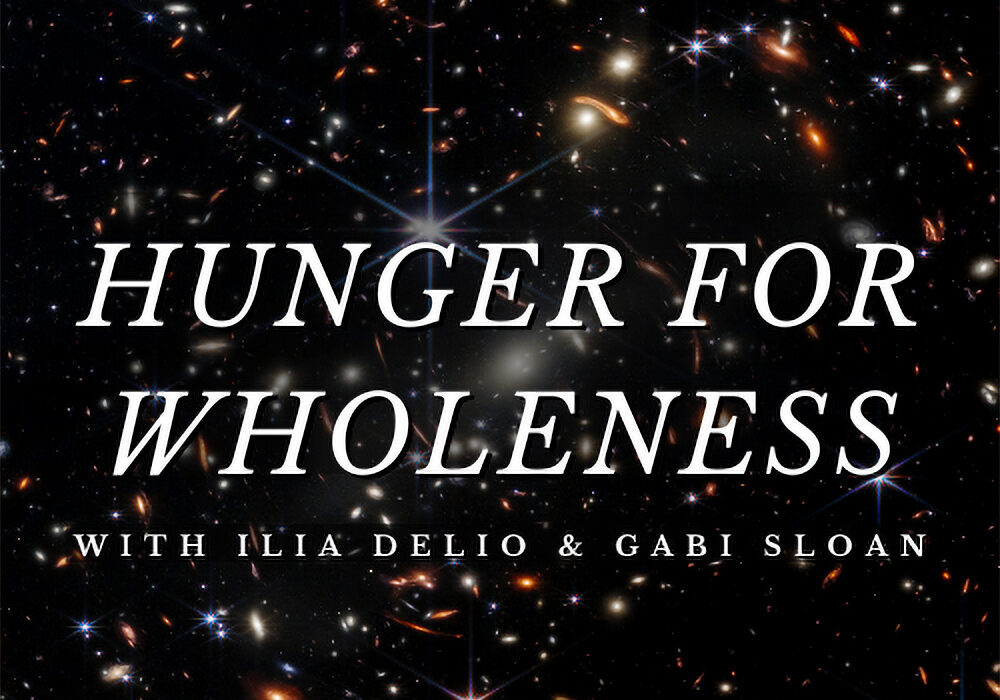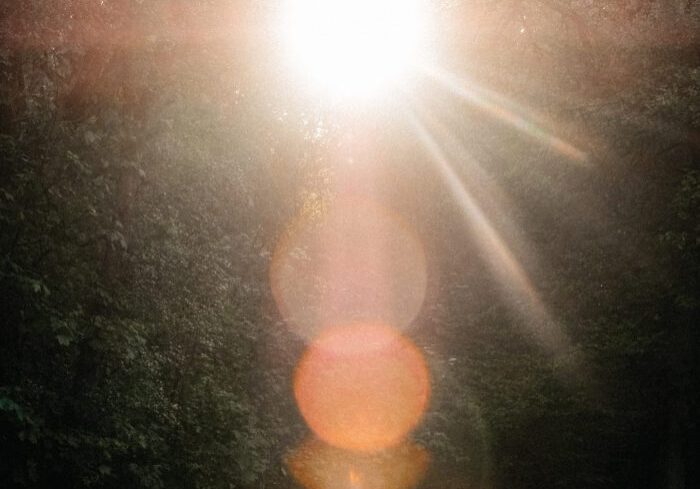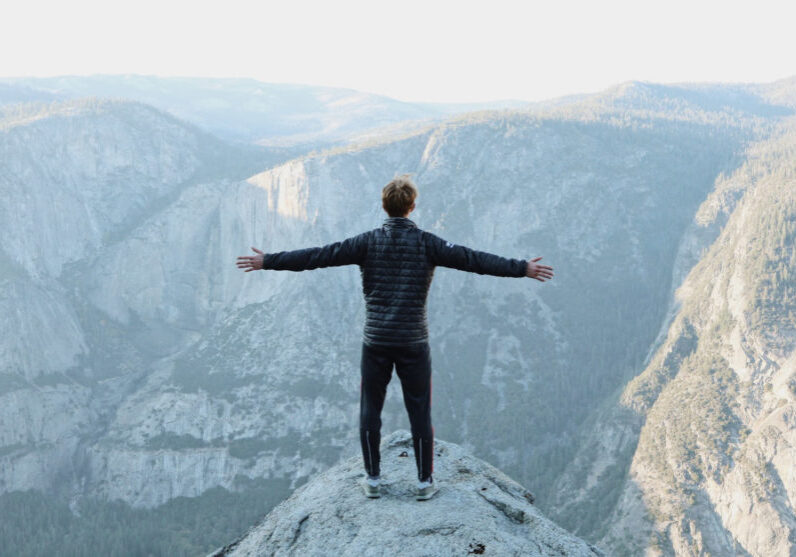The Problem of Evil
Q: N.T. Wright in his book “Surprised by Hope” claimed that Teilhard’s “myth of progress” cannot deal with evil because it can’t stop evil, it doesn’t address the moral problem of all the evil that has happened to the world to date and it underestimates the nature and power of evil itself. It seems to me that Wright sees God only as apart from what is considered evil or suffering. I was wondering if you could respond to that.
 A: Well, I think the first thing we need to clarify is that there is no “myth of progress” in Teilhard’s writings. He never uses the term nor does his vision boast of unbridled progress. This term has been unfortunately imposed on Teilhard and it has led to severely comprising his insights. In light of this misfortune, there is a lot of misunderstanding around his ideas on evolution and evil. For one, evil is not a negative essence of some sort but a privation of the good which may come about by choice (moral agency) or consequence (natural disasters).
A: Well, I think the first thing we need to clarify is that there is no “myth of progress” in Teilhard’s writings. He never uses the term nor does his vision boast of unbridled progress. This term has been unfortunately imposed on Teilhard and it has led to severely comprising his insights. In light of this misfortune, there is a lot of misunderstanding around his ideas on evolution and evil. For one, evil is not a negative essence of some sort but a privation of the good which may come about by choice (moral agency) or consequence (natural disasters).
The fifth century mystical writer Pseudo-Dionysius said that God knows evil under the form of the good, meaning that God only recognizes the good and not the absence of the good. Hence evil is a distortion or annihilation of the good. Teilhard saw evil as the incompleteness of physical evolution in so far as evolution is oriented toward a higher state of unity. This “movement” toward unity is based on the fact that we humans can study evolution and understand the process from which we emerge. Hence we have a sufficient unity of intellect, a complexified brain, that enables us to realize we are evolution on the level of self-consciousness. But we are incomplete creatures because we have not attained the fullness of unity; hence we are bounded, finite and can choose against the good.
Teilhard thought that evolution toward unity is impossible without giving rise to evil by statistical necessity. This is not a light-hearted dismissal of evil but a reality check that in a finite universe of such an enormous magnitude, disorder and failure are inevitable at every level of created being. Evil therefore is “the very expression of a state of plurality that is not yet completely organized.” Teilhard states that in our universe “evil appears necessarily and abundantly … not by accident (which would not much matter) but by the very structure of the system”; a universe in evolution is necessarily “a universe which labors, which sins, which suffers.” The existence of evil “seems to be the rigorously inevitable concomitant of creation.”
Teilhard was not a naïve thinker. In his view to say that God could “obtain a creature united to Himself without entering into combat against evil” is a contradiction. We are not God and our tendency is to choose against God because we are selfish creatures, incomplete but open to completion in the future. Everything that is not yet finished and organized must inevitably suffer in its residual lack of organization and in its possible disorganization. One does not have to be a theologian to figure this out. When we know things partially, we know them somewhat incorrectly. We make mistakes based on partial knowledge. We are constantly living with incompleteness and multiplicity, but long for completeness and unity.
In Teilhard’s view, the world seen experientially from our point of view, is an immense groping, an immense enterprise, an immense attack; its progress is made at the price of much failure and of many wounds. In a universe moving toward always greater unity, sin is a return to the multiple, a descent from a more or less unified state to a less unified state.
Sin is precisely the deliberate movement of the will away from unity; it is evil at the level of moral consciousness. “There is only one evil,” Teilhard writes, “disunion. We call it moral evil when it affects the free zones of the soul.”
So Teilhard sees that sin is inevitable in a universe (this large) in the process of unification. If there was no sin (fracture, disunion) there would no impetus to transcend our present state. Sin, for Teilhard, is the free choice of disunion, of disorder; sin is living in the exile of unrelatedness. It is the inevitable counterpart of movement toward greater unity.There is no order in the process of formation that does not imply disorder, and the gradual forging of unity in the realm of the specifically human inevitably means the moral disorder that is sin. It is in the context of the progress of humanity toward greater unification that Teilhard speaks of a growing temptation to revolt. In face of the choice between fidelity and infidelity to the movement of life toward Omega, in the choice between good and evil, the human person is more and more tempted to choose evil, to sin. Teilhard writes: “suffering is above all the consequence and the price of a project of development. Its force is the force of effort. . . . The Cross is the symbol of the difficult work of evolution rather than the symbol of expiation.”
How does Teilhard visualize the universality of original sin? He takes as a postulate that the void, the utter nothingness out of which God began His creation, be thought of as an infinite multiplicity and that God’s creative act be understood as a gradual process of arrangement and unification. The history of the world, then, can be imagined as a cone with an infinite multiplicity as its base and with the future synthesis of all things in Christ as the apex. In such a universe in a state of converging evolution, evil is at every level—moral as well as physical. Original sin is the inevitable existence of evil in the world, a universal condition. Thus, original sin for Teilhard is a negative and inevitable structural element in an evolving universe, a universal condition of existence in a progressively converging world. He spoke of original sin as the necessary reaction of the finite to the creative act; the “other side” of the whole creative process. Humans are not born in sin because of some aboriginal sin of a primitive Adam. Rather they are born in original sin because this is the law of the universe, the cosmic condition of a world in evolution.
Because of the nature of this evolving universe where evil is statistically inevitable at every level, Christ’s work of the unification of all things in Himself appears to us as involving the pain of the redemption. Teilhard sees Christ’s redemptive work as also including the “creative pain” of a “specific effort of unification that goes against a kind of inclination or inertia of existence in virtue of which participated being tends constantly to fall back toward multiplicity.” In 1920 he wrote that “if Christ is to be understood as truly universal, then Redemption and the Fall must be understood as extending to the whole universe.” The whole universe is “fallen” or incomplete, and the whole universe is in the process of redemption. God who creates the universe is incarnate from the beginning as creator and redeemer. Therefore, creation, considered as “creative union,” implies a certain immersion of the Creator God in the work of creation.
Because the creative process inevitably engenders evil as a secondary statistical effect, due to the finite, bounded contingency of nature, a certain redemptive compensation on the part of the Creator is implied. Creation, Incarnation, and redemption, in the framework of Teilhard’s thought, are understood as structural elements of one single great mystery. In the context of a world in a state of becoming—in a state of converging evolution—creation, incarnation and redemption are seen as three complementary facets of one single process which Teilhard called “pleromization,” the process of increasing fullness, the gradual unification of all things in Christ. The work of pleromization is the rise of consciousness in evolution and hence the rise of God insofar as we humans become conscious of divinity.
Teilhard thought much more deeply and broadly about the presence of evil in evolution than his detractors describe. He lived through two World Wars and served as a stretcher bearer in World War I. He was cut off from his family for years and most of them died before he could see them again. He was misunderstood, silenced by the Church (and the Jesuits) and forbidden to publish his spiritual writings. He thought in terms of evolution which means he thought about God in a world of movement, change and complexity. Not to consider this fundamental starting point for Teilhard’s ideas is to misinterpret him.
But let’s put Teilhard’s ideas into a present, real-time context so that we are not floating on a sea of abstractions. Michael Sean Winters recently wrote an excellent article in the National Catholic Reporter indicating that the imprisonment of poor migrant refugees at the U.S. border is turning into American concentration camps. This is a harsh reality. We talk about evil as an abstraction but how do we know if we are complicit in the evil of incarcerating innocent children, women and men? Is turning a blind eye and deaf ear the answer? Winters implies that the American people are at this moment are part of collective evil because we are implicitly depriving the good of innocent human people. He goes further and states that Catholics Bishops, those are called to lead and set an example for the Church, must defy the law and stand with the people. He writes:
They should go to the site with a team of lawyers, surrender their passports and ask ICE to apprehend them too. Or if they have a detention center in their diocese, they could lead a group of Catholics in blocking the entrance. The bishops should also consider identifying certain parishes as sanctuaries, parishes with the capacity to keep people housed and fed for a considerable period of time. The bishops could place themselves in front of the entrance. If there is an ICE raid, demand a warrant. If there is a warrant, block the entrance and make them arrest the clergy before they get to the migrants. Retreat houses and seminaries would make excellent sanctuaries, already possessing the capacity to provide shelter and food. Take a special collection at all parishes to provide for these basic necessities. Cling to the oppressed as we cling to the cross: The embrace is one and the same.
Wow, could you imagine? But this is what it means to evolve. It is first, to transcend the boundaries that separate or divide in order to unify, to let go of structures that alienate or stifle the law of love. This requires moral agency and action. Second, to evolve is to act out of a new center of consciousness, a center of freedom in love, trusting that God is within and ahead. Third, to evolve is to participate in the creation of the world, to be co-creators with God in what the world becomes. The Church cannot keep talking about climate change or the poor without actually doing something new and not just issuing new pieces of writing on these matters.
To live in evolution is to live in the flow of change, to be ready to change structures when the right times, to act as change-agents toward greater unity and justice. The whole sweep of evolution, in Teilhard’s view, is the rising up of Christ—Christogenesis. By staying still and only thinking (or reading) about the evil in our midst is to be part of the disunity and fragmentation. If we are not engaged in evolution, we are part of devolution or thinning out of the world’s potential for unity. Not to transcend boundaries, as Winters points, is to be a culprit of evil. We crucify Christ over and over. We will have to answer for our failure to act.
Evolution is far from some naïve progress of movement. Teilhard was clear that the process of evolution could fail; we could annihilate ourselves and cosmic death can ensue. To recognize evil is to realize our own creative efforts to overcome fragmentation and disunity—to put love where there is no love; to build up a greater unity in love. The Church and the Government, of which we are all in some way a part, are the present culprits of evil under the guise of the good. One cannot be a Christian and turn a blind eye. Moral blindness contradicts the Gospel. The innocent children, women and men detained in the border concentration camps are our brothers and sisters. We belong to this earth home together and we will either move into the future as a sacred planetary family or not at all.
 View print-friendly version
View print-friendly version
15 Comments
Related Posts

Hunger for Wholeness Podcast Launches!
Story matters. Our lives are shaped around immersive, powerful stories that thrive at the heart of our religious traditions, scientific inquiries, and cultural landscapes. All stories – big and small…


Capitalism and socialism go hand in hand. Neither work without the other. A “capitalist” country (claiming to be about freedom) with little notion of socialism (awareness that the illusion of separation is just that, an illusion) at the individual level is not really a capitalist country. A “socialist” country with little notion of freedom at the individual level is not really a socialist country.
I’ve been watching a YouTube channel called “Invisible People” lately… If the state of a society is measured by the treatment of its most vulnerable… then it certainly does seem like evil starts with capitalism… but then I don’t think countries that treat their most vulnerable like animals are truly capitalist countries at all but a poor imitations of it.
Sr Ilia, thank you so much for bringing to our attention the duty of Christians faced with a government bent on building a concentration camp to house poor families seeking asylum in the USA. Sean Michael Williams’ NCR column really hit home with me. I live in Australia where we have created similar concentration camps on Manus Island and on Nauru (in Papua New Guinea) where any asylum seekers who arrive in Australia by boat are taken and imprisoned never to be released. We are faced at the moment with our new Prime Minister referred to as ScoMo (short for Scot Morrison) attending the World Trade Organisation and chumming up with the US President who looks on him and Australia as dealing so well with asylum seekers.
Your column put it all together for me and I think Australian Catholics should call on our Catholic Bishops to join in protest and enlist us all in putting an end to our concentration camps. We fail in our duty as Christians. What we are doing is evil and completely contrary to Christ’s call to love one another.
I believe the problem with evil “starts” in the disordered exercise of free will. No? It can’t magically appear out of nowhere in Capitalism, can it? We may–and do–encounter evil there but to say that it starts there and not in the human heart is to fail to understand ourselves adequately.
Thank you again! I have been feeling complicit in my inaction and this certainly motivates me.
Check out a documentary called “Kanyini” by the Australian Aboriginal Elder Bob Randall for an incredible picture of the evil created by the old meta-narrative but also the amazing spirituality of the Australian Aboriginal People.
It hasn’t stopped. The Queensland government, in all it’s wisdom, has recently given the go ahead to the Adani Mine (who have a shocking record of environmental destruction). They plan on shipping 60 million tonnes of coal per year through (yes, that’s right, THROUGH) the Great Barrier Reef World Heritage Area… If you don’t understand the insanity of this, check out pretty much any documentary on The Great Barrier Reef and it’s importance to the world ecosystems…. That is not to mention that Australian Aboriginal Land is also to be destroyed in the process….
Sometimes it’s difficult to see anything but a future in which an unconscious humanity destroys everything…
the problem with evil starts with Capitalism
Under that definition of evil it’s pretty easy to argue that the old narrative of the “in” crowd and “out” crowd has created enormous evil in the world. Those claiming to have the “Good News”, those in positions of authority, are turning away multitudes from a life reunited with their Source by conveying such a poor grasp of reality and in fact laying a foundation for the promotion of religious egos.
I wonder at how people think the pharisees actually thought of themselves as “children of hell” as Jesus called them. It’s exceedingly more plausible that they thought themselves to be very respectable, saved and very worthy teachers…. Thick slice of irony there 😉
Thank you Ilia. This is really an excellent summary of Teilhard’s understanding of human progress and also evil. I wrote my graduate thesis on Teilhard and the points you are making here were very much a part of my writing of him. But of course you have stated it so much better! Yes, for Teilhard progress was all about unification. The more united we were becoming the more we were progressing. I am so grateful to you for making his thought more accessible especially to Catholics.
Thanks so very much Ilia. Your comprehensive response has been most helpful and challenging. Will try to do my very best in my small corner of the world in Perth, Australia.
Oh wow, oh wow oh wow. Thank you thank you. This is so good because we are making our theology very practical and on the ground. Thank you. And I love the way you explain Teilhard’s background to understanding his words and thoughts. I have only just begun to read him and you Ilia, but am so excited to have you explain this so well. Thank you